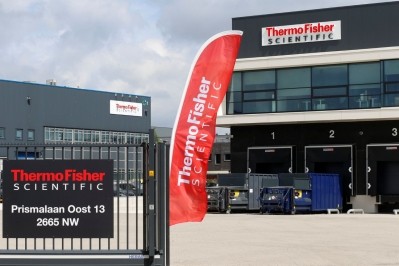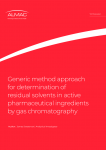Esteve invests €100 million in Spanish API manufacturing muscle

The construction project will be financed until 2026 by a €100 million ($108 million) investment by the company. The facilities, slated to begin operations in early 2026, will involve production and service buildings in addition to up to 150 cubic meters of reaction volume. With the new manufacturing facility, Esteve expects its production capacity in the plant to increase by 45%, with an additional 15% growth in its global capacity.
Esteve’s API manufacturing and development activity has seen “notable growth” in recent years, said Pere Mañé, General Manager of Esteve Química, in a public statement. “The expansion of our main industrial center will allow us to satisfy a growing global demand and expand our activity, advancing our mission of improving people's lives," he added.
The facility will see Esteve take on 100 new staff to add to its current headcount of 370 employees. In addition, the project will deploy unspecified innovations in digitalization and use of data to help the company produce new products for its portfolio for distribution in the United States, Europe, and Japan.
Services and R&D
Esteve was founded in 1929 and has a chemical R&D center in Barcelona along with three production plants in Catalonia. The company also has manufacturing centers in Mexico and China, with a global total reaction volume capacity of 875 cubic meters.
In addition to its contract manufacturing activities, Esteve is developing its own pipeline of treatments with one candidate, Seglenta, approved for the treatment of management of acute pain in the US and Spain. Commercialized in collaboration with Kowa Pharmaceuticals America, Seglenta consists of a co-crystal entity combining the anti-inflammatory compound celecoxib and the analgesic drug tramadol. Other candidates in Esteve’s pipeline include small molecule and gene therapies for pain and rare diseases.
Esteve’s 2023 earnings totaled €710 million, a 10% increase from 2022, according to a recent company announcement. Its revenues in Spain contributed 25% of the total while the rest of the EU and the rest of the world accounted for 49% and 26% respectively.
The growth in Esteve’s API activities is linked to customers seeking tailored manufacturing solutions with capacity, flexibility and expertise, in addition to state-of-the-art facilities, Mañé told Outsourcing Pharma. Some of the advantages of hosting API facilities in Spain, and particularly Catalonia, over other European countries include a robust supply network for materials and equipment, a rich tradition of healthcare companies and a substantial talent pool, he added.
APIs in growth
The global API market was worth $197 billion in 2023 and is expected to rise to $359 billion by 2032, according to Fortune Business Insights. This growth is partly driven by the rising prevalence of chronic diseases with ageing populations, leading to a higher demand for treatments.
Other players funneling cash into their API facilities in recent times include Eli Lilly, which pumped $9 billion into its US API site in May, and Novo Nordisk, which invested $6 billion into its API capacity in Denmark last year.
“Over the next decade, API manufacturing will see significant changes. Digitalization, environmental sustainability, and technological adaptation will drive these transformations,” Mañé said. “Efficient data management, AI, and cybersecurity will optimize processes. Additionally, there will be a focus on reducing environmental impact and handling molecules with higher pharmacological activity,” he concluded.




























